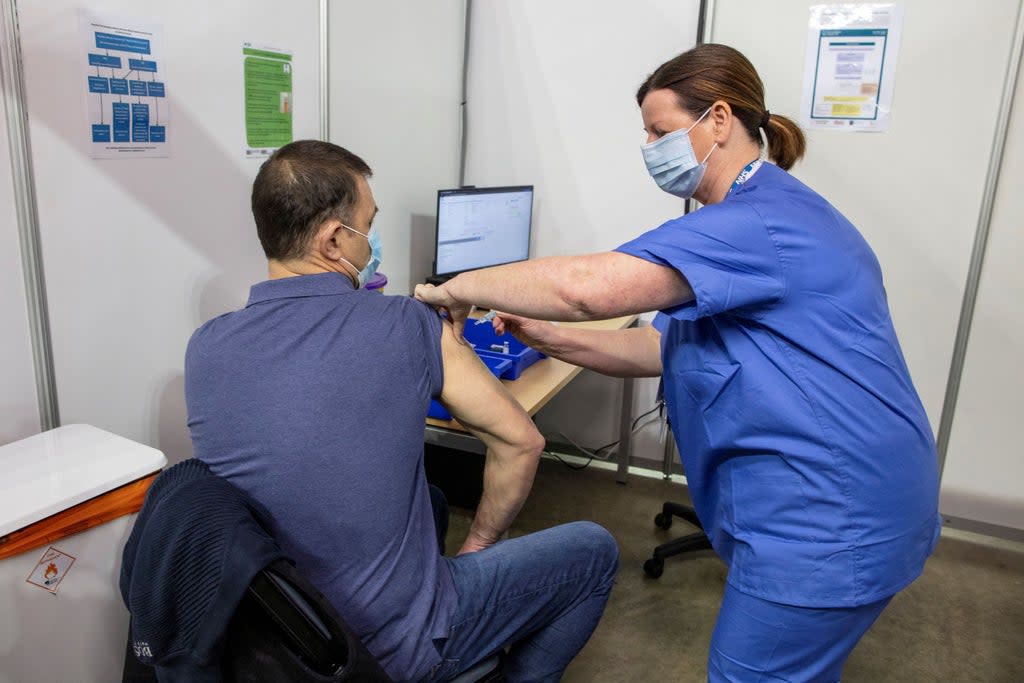Covid: Scientists find trigger for Astrazeneca vaccine-induced blood clots

Scientists at Cardiff University believe they have found the “trigger” behind the rare blood clot complications associated with the OxfordAstraZenecavaccine.
The reaction can be traced to the way the adenovirus used by the jab binds with a specific protein in the blood kown as platelet factor 4 (PF4), researchers said.
A team of scientists from the US and Cardiff said the reaction could spark a chain reaction in the immune system which can culminate in the development of blood clots.
The condition, known as vaccine-induced immune thrombotic thrombocytopenia (VITT), is extremely rare and has been linked to 73 deaths out of nearly 50 million doses of the jab given in the UK. Estimates suggest the jab is thought to have saved about a million lives from Covid.

However, concern over blood clots has influenced vaccine policy. In the UK, anyone aged under 40 is offered an alternative jab as a precaution. Scientists have stressed that members of the public are more at risk from the virus itself.
Professor Alan Parker, from Cardiff University’s School of Medicine, said: “VITT only happens in extremely rare cases because a chain of complex events needs to take place to trigger this ultra-rare side effect.
“Our data confirms PF4 can bind to adenoviruses, an important step in unravelling the mechanism underlying VITT. Establishing a mechanism could help to prevent and treat this disorder.
“We hope our findings can be used to better understand the rare side effects of these new vaccines – and potentially to design new and improved vaccines to turn the tide on this global pandemic,” he added.
Scientists from AstraZeneca also took part in the research, which was published in the journal Science Advances.
A spokeswoman for the company told the BBC: “Although the research is not definitive, it offers interesting insights and AstraZeneca is exploring ways to leverage these findings as part of our efforts to remove this extremely rare side effect.”
Read More
Let’s follow Greece and fine those who refuse jabs

 Yahoo News
Yahoo News 
